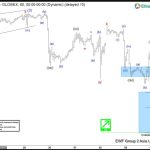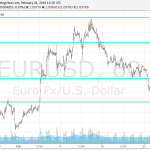Podcast: Play in new window | Play in new window (Duration: 13:16 — 6.1MB)
DOW – 2 = 17,685
SPX – 3 = 2048
NAS – 26 = 4675
10 YR YLD + .03 = 2.35%
OIL – .51 = 74.61
GOLD – 14.40 = 1184.10
SILV – .06 = 16.23
The Federal Reserve’s most recent FOMC meeting was October 28th and 29th; after the meeting they issued a statement saying that QE3 was finished; they painted a fairly positive picture off the economy to confirm their decision. Fed Chair Janet Yellen and her central bank colleagues last month focused on improvements in the labor market when they announced an end to their stimulative bond purchases. They also said that the risk of inflation remaining persistently below their goal had ebbed. Today, they released the minutes of the FOMC meeting and we get some better understanding of their thoughts. No bombshells, not much that was not expected.
Policy makers last month “pointed to a somewhat weaker economic outlook and increased downside risks in Europe, China, and Japan,” in addition to a stronger dollar. There were concerns “that if foreign economic or financial conditions deteriorated further, US economic growth over the medium term might be slower than currently expected.” There was some debate over whether to acknowledge the weakening global economy; the general feeling was that the effects weaker growth overseas would “likely be quite limited,” and that any mention of global weakness could send an unwarranted signal of pessimism. Put on a happy face. Include a few smiley face emoticons and don’t scare people. Fed staff cut their estimates for near-term U.S. economic growth, and policymakers debated both the impact of slowing growth overseas and possible limits on their ability to respond if needed.
The FOMC meeting was in late October and the US stock markets were just bouncing back from a nasty selloff, and it appears the Fed showed appropriate patience by not mentioning what turned out to be a fairly minor pullback. Or maybe they were just following the Alfred E. Neuman philosophy of “What, me worry?” economics. Whatever they thought, they didn’t want to give the impression the Fed would backstop the stock market whenever there was a minor case of turbulence. And it turns out the stock market didn’t need a backstop.
Indeed, JPMorgan has now looked at the market, and determined the recent rally has gone too far, too fast, downgrading the US stock market, reversing its overweight call to underweight as valuations relative to Europe had “turned outright expensive.” The firm upgraded the euro zone to overweight from underweight, believing the region “is due a period of outperformance vs the U.S.,” with European banks primed to support the region.














Leave A Comment